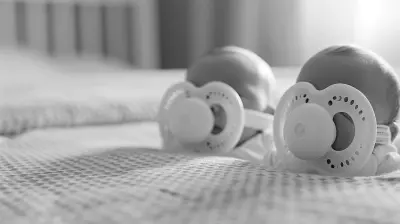The Role of Predictable Routines in Handling Meltdowns
30 May 2025
Parenting is one of the most rewarding journeys, but let’s be honest—it can also be a rollercoaster ride filled with unexpected twists and turns. One moment, your little one is giggling, and the next, they’re having a full-blown meltdown in the middle of the grocery store. Sound familiar?
Meltdowns are a natural part of child development, but that doesn’t make them any less stressful. The good news? Predictable routines can be a secret weapon in your parenting toolkit. They create stability, reduce anxiety, and help children handle big emotions. In this article, we’ll dive deep into how predictable routines can make a world of difference when it comes to managing meltdowns. 
Why Do Kids Have Meltdowns?
Before we get into routines, let’s take a step back and look at why meltdowns happen in the first place. Kids—especially toddlers and preschoolers—are still learning how to navigate their emotions and communicate their needs.Think about it: Adults have bad days too. But while we have the words and coping mechanisms to deal with stress, little ones don’t. Instead, they express frustration, exhaustion, hunger, or overstimulation through meltdowns.
Some common triggers include:
- Hunger or tiredness (a.k.a. the dreaded hangry meltdown)
- Changes in routine (unexpected transitions can feel overwhelming)
- Sensory overload (bright lights, loud noises, crowded places)
- Frustration or lack of control
- Big emotions (not knowing how to express sadness, anger, or disappointment)
While meltdowns are completely normal, they can still be frustrating for both kids and parents. Luckily, having a predictable routine can help minimize their frequency and intensity. 
How Predictable Routines Help Reduce Meltdowns
1. Provides a Sense of Security
Children thrive on predictability. Knowing what to expect helps them feel safe and secure, which in turn reduces stress and meltdowns.Imagine if someone kept changing your work schedule at the last minute—how frustrating would that be? That’s how kids feel when routines are inconsistent. Predictability gives them a sense of control in a world that often feels overwhelming.
2. Reduces Decision Fatigue
Believe it or not, kids deal with decision fatigue just like adults do. When they don’t know what’s coming next, their tiny brains have to work overtime to process the unknown. This can lead to emotional exhaustion—and more meltdowns.Having a predictable structure to the day removes unnecessary battles. Instead of fighting over bedtime or mealtime, kids just know what to expect.
3. Creates Smooth Transitions
One of the biggest meltdown triggers? Transitions. Moving from one activity to another—especially when kids are deeply engaged—can be tough. But routines act like a bridge, helping kids transition more smoothly.For example, instead of abruptly saying, "Time to leave the park!" you can follow a predictable pattern:
- Give a heads-up: "Five more minutes, then we pack up."
- Follow the routine: "After we leave the park, we always have snack time at home."
- Stick to it consistently
When kids know what comes next, transitions feel less jarring, reducing the likelihood of a meltdown.
4. Helps with Emotional Regulation
Big emotions can be overwhelming for little ones. Having routines in place can act as an emotional anchor, helping children stay grounded.Think about bedtime routines. A predictable series of calming activities—bath, pajamas, storytime—signals to the brain that it’s time to wind down. Without that structure, bedtime battles become way more frequent.
The same concept applies to other parts of the day. When kids know what to expect, they feel more in control of their emotions. 
Creating a Predictable Routine That Works
Now that we know why routines matter, how can you create one that actually works? Here are a few simple but effective tips:1. Start with Anchors
Anchors are fixed points in the day that set the tone for everything else. These might include:- Wake-up time
- Mealtimes
- Nap or quiet time
- Bedtime routine
Once these are in place, you can build the rest of the day's activities around them.
2. Keep It Simple and Realistic
Your routine doesn’t have to be packed with activities. The goal is consistency, not perfection. Keep it simple so it’s easy to follow.For instance, a morning routine might look like this:
- Wake up and cuddle
- Brush teeth and wash face
- Eat breakfast
- Get dressed
- Head to school or playtime
Nothing fancy, but it sets a clear structure that helps kids know what to expect each day.
3. Use Visual Schedules or Timers
For younger kids, visual schedules can be a game-changer. A simple chart with pictures showing the daily sequence (wake-up, breakfast, playtime, etc.) helps them understand what comes next.Timers can also be helpful for transitions. If your child resists switching activities, a countdown timer can mentally prepare them.
4. Stay Flexible
Wait, didn’t we just say routines need to be predictable? Yep! But life happens, and sometimes you need to adjust.The key is balancing structure with flexibility. If something unexpected comes up, acknowledge it and provide reassurance:
"Today’s a little different, but we’ll still have our bedtime story after dinner."
This small reminder helps kids feel grounded even when things don’t go exactly as planned.
5. Model Calm and Consistency
Kids pick up on our energy. If you stay calm and patient, they’re more likely to mirror that behavior. When a meltdown happens (because, let’s be real, they still will from time to time!), sticking to your routine and responding with empathy can help prevent things from escalating.
What If a Meltdown Still Happens?
Even with the best routines in place, meltdowns are inevitable. But don’t worry—it doesn’t mean you failed. When one does happen, try these steps:1. Stay calm – Take a deep breath and model the emotional regulation you want your child to learn.
2. Validate their feelings – "I see you're really frustrated. It’s okay to feel that way."
3. Use a calming strategy – Deep breaths, a hug, or a familiar comfort item can help.
4. Stick to the routine – Once they calm down, gently guide them back to their usual schedule.
Remember, meltdowns aren’t personal. They’re just a sign that your child is still learning how to handle emotions. Predictable routines won’t eliminate them completely, but they will make a huge difference in how often they happen and how quickly your child bounces back.
Final Thoughts
Parenting comes with its fair share of challenges, and meltdowns are simply part of the journey. But by incorporating predictable routines, you’re setting up a solid foundation for emotional stability, smoother transitions, and fewer tantrums.It won’t be perfect (because, let’s face it, kids are unpredictable creatures). But with a little consistency, patience, and love, you’ll find that your household becomes a much more peaceful place—one routine at a time.
And let’s be real, a little peace in parenting? That’s worth its weight in gold.
all images in this post were generated using AI tools
Category:
Parenting RoutinesAuthor:

Kelly Snow
Discussion
rate this article
3 comments
Morgan McEachern
Great tips! Routines really do make a difference!
June 19, 2025 at 4:19 PM

Kelly Snow
Thank you! I’m glad you found the tips helpful. Routines truly can create a calming environment!
Mary Frank
This article highlights the crucial role of predictable routines in managing meltdowns. Consistency provides children with a sense of security and helps them navigate their emotions. Implementing structured daily schedules can significantly ease stress for both parents and kids, fostering a calmer home environment.
June 2, 2025 at 2:47 AM

Kelly Snow
Thank you for your insightful comment! I'm glad you found the importance of predictable routines in managing meltdowns. Consistency truly benefits both children and parents.
Runeveil Mason
This article highlights the importance of predictable routines in reducing meltdowns. Consistency not only fosters security for children but also helps parents manage stress effectively. Great insights!
June 1, 2025 at 4:08 PM

Kelly Snow
Thank you for your thoughtful comment! I'm glad you found the insights on routines helpful in supporting both children and parents.



